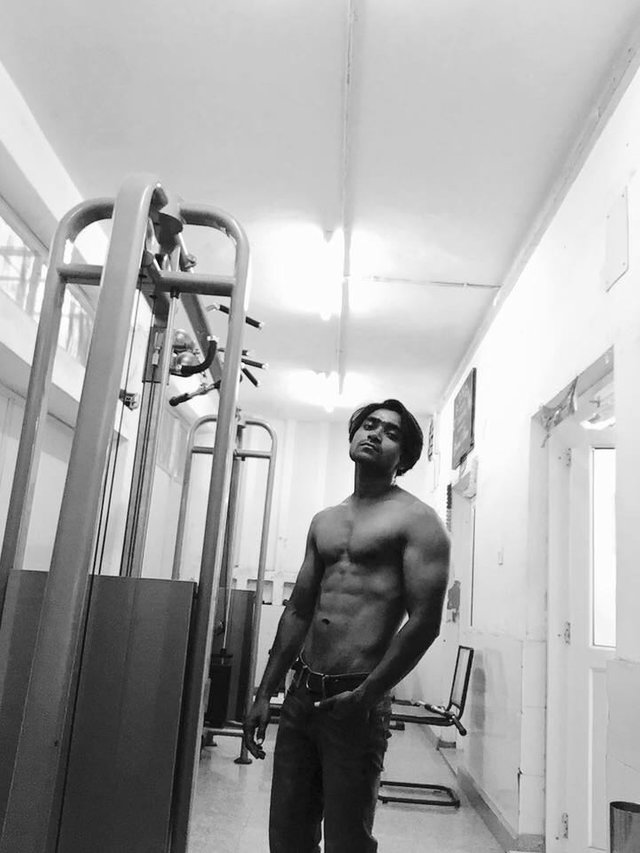
Rule #1 – Forget about the “Eating Window”
A lot of people have difficulty fasting because they are early risers. They wake up around 5am or 6am and try to fast until the early afternoon because they think they need to adhere to some arbitrary 8-hour feeding window from 1pm to 9pm.
The reality is that the game changes depending on what time you rise in the morning.
If you wake up earlier, you should be having your first meal earlier. Conversely, if you sleep in like I do, you should eat later in the day.
The power of fasting comes down to spending a good chunk of the day in the fasted state. This isn’t about some arbitrary feasting window, but rather a tailored approach of eating 4-7 hours after you typically wake up.
For example, if you are out of bed by 5am, I recommend having your first meal around 10am-12pm.
Alternatively, if you wake up at 10am, then I suggest having your first meal around 3-5pm.
Four to seven hours is a perfect amount of time to spend in the fasted state each waking day.
The sweet spot for me seems to be about 6 hours and some days I’ll push it further. But I recommend listening to your body’s feedback to determine when you should eat your first meal.
Some people may prefer to fast well into the day; others will prefer to eat just 4 hours after rising. Whichever protocol you
find more enjoyable is the strategy I encourage. And also, keep in mind that it may change overtime.
Best of all, because you’re not trying to adapt your life to some feasting window, you don’t have to worry about eating your meals at the same exact time each day.
If you have to have your last meal earlier or later than usual, it won’t make a lick of a difference. Keep it simple and keep it flexible, fasting should enhance and liberate your life, not control it.
Rule #2 – Use Caffeine Strategically☕️
If you’re not currently taking caffeine/coffee during your fasts then you are missing out big time!
Caffeine is much more powerful when ingested in the fasted state. Moreover, caffeine serves to enhance many of the effects of fasting.
Caffeine stimulates the metabolism, blunts appetite, increases energy levels, elevates fat mobilization and also heightens
mental alertness. (Not to mention, coffee is associated with plenty of positive health benefits.)
That being said, I recommend strictly limiting your caffeine intake to the fasting portion of the day.
If you drink plenty of coffee throughout the day, you will become more and more desensitized to the effects of caffeine. This will diminish the hunger blunting and energy boosting effects of caffeine.
Reducing caffeine to the fasted state and only the fasted state makes fasting downright effortless.
My advice is to drink 2 cups of black coffee during the fast and at no other point in the day. If you want a hot beverage later in the day then go with some herbal tea.🍵
If you hate black coffee then I recommend sucking it up. Within a few weeks you will grow a fondness for black coffee that will trump just about anything else.
Whenever i go out with someone,during the fast,i opt for "americano" at starbucks,this way fasting allows me to chill while enjoying my social life.😎
Rule #3 – Workout Intelligently💪🏻😎👈🏻
Intermittent fasting works best with intelligent, focused training. I recommend basing your sessions off low volume strength training to build strength and muscle. If you want to burn some calories, low intensity walking is your best bet, which has a neutral effect on appetite.
If you want to do some conditioning work, limit it to short sprint/interval sessions lasting up to 20 minutes.
There’s no need for any additional training on top of this, unless of course you’re a competitive athlete and need to do skill work for your sport. Drawn out interval sessions, circuit routines and high volume workout sessions will burn a bunch of energy, rendering you ravenous during your fast.
Moreover, these forms of training are completely unnecessary in nature and will only serve to retard your progress from your much more important strength and muscle building sessions.
If you want to do additional exercise, it should be light to moderate in nature.
In this case I’d recommend focusing on having fun or learning and honing a skill, rather than trying to destroy yourself in the gym. Recreation sports and yoga or martial arts are great options. But cross fit, P90X and hour-long running sessions are not acceptable.
Intermittent fasting is an incredible tool for staying lean, so make use of it! Focus your efforts on building strength and muscle, add some light activity like brisk walking here and there and throw in some short sprints if you feel so inclined.
Other than that, well... There’s more to life than exercising, and trying to do more intense training is only going to hamper your progress.
Rule #4 – Strategic Fruit Snacking🍎🍌🍒🍋
If you find yourself getting hungry before your first meal I recommend snacking on a piece of fruit. Fruit is very helpful in the fasted state because it helps to replenish liver glycogen. When liver glycogen levels become depleted from long fasts, a signal is sent to the brain that triggers hunger.
By having a serving of fruit when you get hungry near the end of your fast, you are effectively down regulating hunger
signals. Moreover, replenishing liver glycogen helps to shift you back into an anabolic state.
The best time to eat fruit is on a relatively empty stomach, when carbohydrate stores are low. This ensures that the carbs from the fruit are used to replenish depleted liver glycogen stores.
After a big meal with carbs, your liver glycogen levels will be relatively topped off. Any additional fruit on top of this will have to be burned for energy or it will get stored as fat.
Therefore I recommend eating 2-3 servings of fruit per day to stave off hunger and then getting the rest of your carbs from starches like potatoes and rice, which are better at restocking muscle glycogen. I usually have an apple before lunch and dinner and occasionally a banana before bed.
Bananas are higher in glucose so they do a better job at replenishing muscle glycogen than most fruits. Further, bananas stimulate the release of serotonin in the brain, which improves relaxation and helps with sleep.🍌
What’s more, bananas are a good source of magnesium and potassium, which promotes muscle relaxation, further enhancing sleep.
Rule #5 – Eat Big
If you’re switching to intermittent fasting then you’re going to have to eat much bigger meals than you’re accustomed to. If you don’t adjust the size of your meals accordingly, you will be very low in calories and nutrients and hunger will be pronounced during the fast.
Alternatively, you will be tempted to snack on junk to get your calories up, which will likely lead to excessive calorie consumption.
Eat a big lunch and dinner so you’re full and satisfied, if you skimp on these meals you’re at risk of becoming very hungry.
In addition, you’re going to want to emphasize lots of protein with your meals to ensure you hit your protein numbers and to encourage satiety.
When I go out to restaurants, I often order a double serving of Chicken. One of my favorite meals is to order a 12" sub (subway) and ask for two patties. I get the sub topped with lettuce and cheese and olives, Bhaisaab,mazza aajata hai🌮🌯🍔
Another restaurant favorite of mine is to go to KFC and get chicken rice bowl, with 1 chicken piece(i opt for breast piece)🍲🍗
At first, expect to be incredibly full! In fact, nearly all of my friends mention that they are extremely full despite dieting.
Some even have trouble finishing meals (I’m joking). This is a good thing. This is the ultimate diet hack.
When you feel extremely satisfied and filled up while dropping fat, life is pretty damn good!
If you’re trying to go too low in calories and eating just two modest meals per day, you’ll be in too big of a calorie deficit, and your fasts will be pretty brutal.
So don’t be scared of eating more than what seems reasonable... You have my whole-hearted permission.
Rule #6 – Forget About It
Forget about the fact that you’re fasting. You don’t have to tell the whole world and your pet gold fish how long you’ve been fasting for.
No one cares. Besides, it’s not really a big deal! This is how I believe humans should eat anyways; I think it’s crazy eating first thing in the morning.
So don’t think that you’re bending spoons with your mind all of the sudden because you’ve been fasting for a big chunk of the day.
By not thinking about how long you’ve been fasting for and by not making a big deal about it, it feels completely natural.
It takes the effort and will power out of fasting!
The Next Steps
Use Intermittent Fasting... It works!
Your next steps are to USE this information. Don’t let it collect “virtual dust” on your hard drive. Put it to use and it will help you change your physique.
Thanks for reading this guide!
✅ @egosumo, I gave you an upvote on your post! Please give me a follow and I will give you a follow in return and possible future votes!
Thank you in advance!
Downvoting a post can decrease pending rewards and make it less visible. Common reasons:
Submit
Hi! I am a robot. I just upvoted you! I found similar content that readers might be interested in:
https://kinobody.com/intermittent-fasting-guide/
Downvoting a post can decrease pending rewards and make it less visible. Common reasons:
Submit
Congratulations @egosumo! You received a personal award!
You can view your badges on your Steem Board and compare to others on the Steem Ranking
Do not miss the last post from @steemitboard:
Vote for @Steemitboard as a witness to get one more award and increased upvotes!
Downvoting a post can decrease pending rewards and make it less visible. Common reasons:
Submit